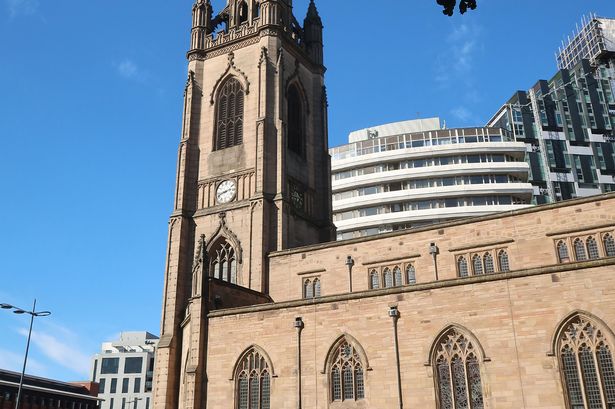Liverpool's first recorded black resident – an enslaved man – is remembered by a stone monument in a city centre church yard.
In 1717, the death of a Liverpool resident, Abell, was listed in the records of Liverpool Parish Church, now better known as the Church of Our Lady and Saint Nicholas. Abell was an African man who is believed to have been enslaved and brought to the city where he lived and died over 300 years ago.
Buried in the churchyard of Liverpool Parish Church on October 1 that year, little else is known about him. A monument for Liverpool's first recorded black resident was finally unveiled in 2020 – after historian Laurence Westgaph campaigned for Abell to be suitably commemorated.
READ MORE: Exploring the life and legacy of city activist Dorothy Kuya
Mr Westgaph, a PhD student who is also the historian-in-residence at National Museums Liverpool, previously told the ECHO: "As part of my PhD I put together a database of all baptisms, marriages and burials in Liverpool.
"Although there were earlier baptisms, his is the earliest burial, so we can see he was the earliest recorded black resident of the city. We don't know where he came from or when he got here."
At the time, Liverpool was a tiny market town with a population of approximately 10,000 people. But during the 18th century, the city was also part of the slave trade "triangle" with West Africa, America and the West Indies.
Thousands of enslaved Africans passed through the city and the trade generated great wealth locally. As well as being a port where enslaved Africans passed through, there is written evidence of a growing resident black population at this time.
Liverpool Rector, Reverend Canon Dr Crispin Pailing, previously told the ECHO the tribute to Abell's life at St Nicholas' Church, and the memorial acknowledging his death in this city, is an important part of Liverpool coming to terms with the realities of its past.
He said: “We cannot hide from our past, and there is no institution from this era of our history which is free from the taint of this horrific trade. We cannot give justice to Abell and other enslaved Africans, but we can give them the dignity of naming them when we can, and we can give them status within the history of our city."
The ECHO has chosen to share this story again to mark the beginning of a week of events commemorating slavery remembrance in Liverpool. National Museums Liverpool has created a number of different events, including walks, family activities, workshops and talks, to encourage learning from the injustices of the past and explore how we can all work together to prevent them from happening again.
The ECHO will cover a number of the events and hear from different voices in the city on why they commemorate Slavery Remembrance Day.
Don't miss the biggest and breaking stories by signing up to the Echo Daily newsletter here.

